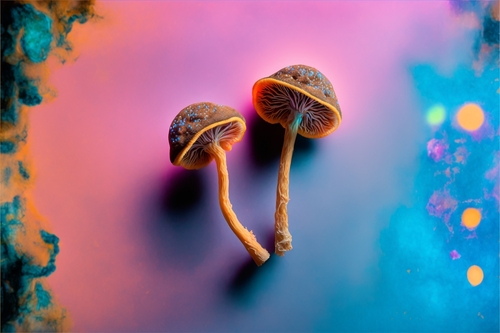A recent study published on September 13, 2024, suggests that more than 5 million Americans suffering from depression could find relief through psychedelic-assisted therapy. Psilocybin, the active ingredient in "magic mushrooms," is showing significant promise in treating major depressive disorders and treatment-resistant depression, with researchers advocating for its potential FDA approval as a mental health treatment option.
The study, led by Fayzan Rab, a medical student from Emory University, estimated that around 56% to 62% of patients currently undergoing treatment for depression could be eligible for psilocybin therapy. These estimates, derived from national survey data, suggest that this psychedelic could offer transformative relief to an estimated 5.1 to 5.6 million patients annually.
Democratic Senator Calls State-Led Psychedelics Reform 'Timely And Appropriate,' Touting Therapeutic Benefits For PTSD Patients: "Our attitude toward marijuana and hallucinogens, it’s gotta continue to evolve. It can’t get stuck."https://t.co/JMWOwXogAM
— Marijuana Moment (@MarijuanaMoment) September 16, 2024
Psilocybin has been classified as a "breakthrough therapy" by the FDA, which indicates that its potential to address depression could be groundbreaking. This designation has accelerated research into the drug, positioning it as a frontrunner in alternative depression treatments. Psilocybin's unique therapeutic process involves taking the substance in a controlled environment under medical supervision, accompanied by psychotherapy. Unlike traditional antidepressants, which require daily dosing, psilocybin therapy could involve only one or two sessions, lasting several hours, with significant follow-up psychotherapy.
This study’s projections are especially compelling, given that up to one-third of the study’s upper-bound eligibility estimates include patients who also suffer from alcohol or substance abuse disorders. Mounting evidence suggests that psilocybin may prove effective for these individuals, challenging previous assumptions that these disorders could limit its use. If this potential is realized, the population eligible for psilocybin therapy could expand significantly.
In the latest episode we dive into what it was like to be a combat soldier in Iraq, how the CIA treats detainees, seeing Aliens in real life & using psychedelics as a treatment for PTSD pic.twitter.com/CPzQIjSQbl
— Ian Bick (@ian_bick) September 16, 2024
The study’s authors emphasized the importance of understanding the broader public health and economic implications of integrating psychedelic therapies into mainstream treatment. Healthcare policymakers, insurance companies, and clinicians will need to navigate issues such as insurance coverage, trained practitioner availability, and access to psychedelic therapy centers to accommodate the influx of patients who could benefit from this alternative treatment.
Currently, depression affects an estimated 15 million American adults, and traditional antidepressant medications are ineffective for many patients. Psilocybin’s therapeutic advantages have been further validated through its performance in clinical trials, which showed it to outperform standard treatments like antidepressants and placebos. Participants reported significant improvements in mood and well-being after as few as one or two doses.
However, the introduction of psilocybin-assisted therapy will face several challenges, particularly regarding its implementation in the real world. The therapy requires a structured environment, often with sessions lasting up to eight hours. This complexity, along with the cost of training specialized therapists and the necessity for follow-up care, could make access limited. Moreover, experts caution that if the therapy is not adequately regulated, unlicensed practitioners could cut corners, potentially endangering patients.
Dr. Rakesh Jain, a psychiatry professor at Texas Tech University, expressed optimism about the findings, noting that this study demonstrates the far-reaching impact psychedelics could have on mental health care. What was once considered a niche treatment may soon become a widely accepted method of addressing depression, he noted.

